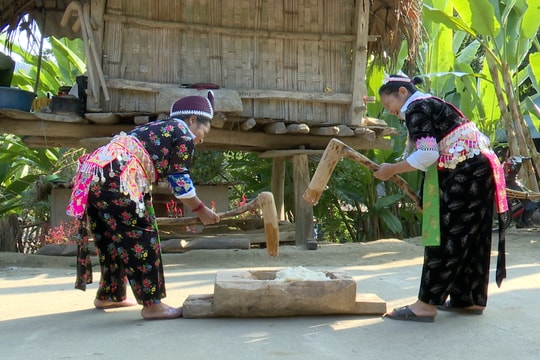6 taboos when traveling to Western Nghe An
(Baonghean.vn) - Do not say “too full” or “too satisfied” when eating wild meat at a Thai hunter’s house. Do not enter the Khmu people’s worship kitchen. Do not wear shoes, carry backpacks, or large bags into the houses of Mong people with newborn babies… are things that “backpackers” should remember when exploring Western Nghe An.
1. Saying “I'm full” at the hunter's house
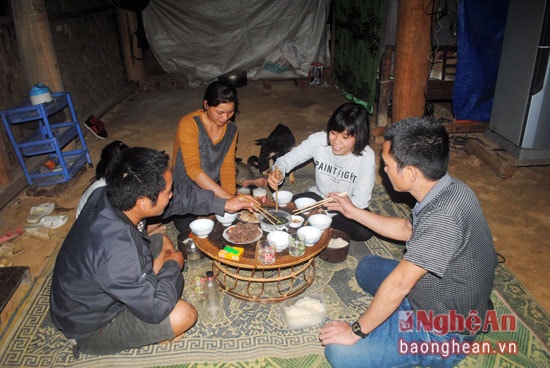 |
| During a meal at a hunter's house, it is not appropriate to say "I'm too full." |
Hunting and catching wild animals with traps is an inherent hobby that is still maintained in some highland districts such as Ky Son, Tuong Duong, Que Phong... Therefore, when coming to these areas, "backpackers" are very likely to be invited by the hospitable Thai people to a meal with rice wine.
A hunter in the village, when hunting a big animal like a deer, or even a roe deer or weasel, will invite guests to enjoy the forest's bounty with a jar of wine. According to habit, after having drunk enough, people often say thank you to say goodbye to the host: "Thank you for the meal. I felt so hungry that I ate too much."
Many hunters will feel unhappy after hearing this. Instead, the guest should say: "The meat is delicious, but we are not full yet. Hope you can hunt a bigger animal next time."
2. "Prying" at the Thai altar
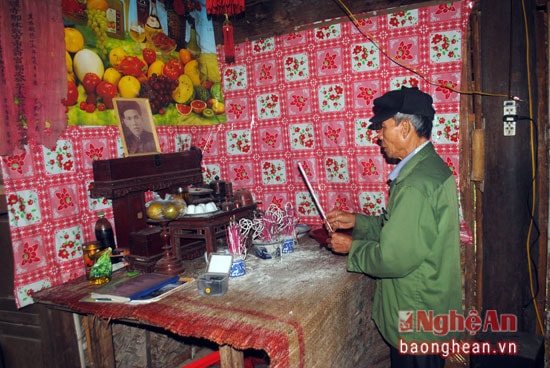 |
| The altar is the most sacred place for Thai people. It is best not to touch the artifacts even if you are very curious. |
The Thai stilt house has a unique architecture, each room has a different function. The kitchen is usually located at the back, mainly for cooking, eating for women and children, and storing seeds and medicinal herbs.
The middle room is where the master bedroom is and where the offerings are placed. The remaining rooms can be used for bedrooms for couples and children in the house. The outermost room is where the ancestral altar is placed. In many places, people often place a bed for guests to stay overnight. However, guests are absolutely not allowed to approach the family altar. Because this is the most sacred place in the house.
In some places, Thai people do not even allow women to sleep in the guest bed in the outer room.
3. Entering the kitchen of the Khmu "house ghost"
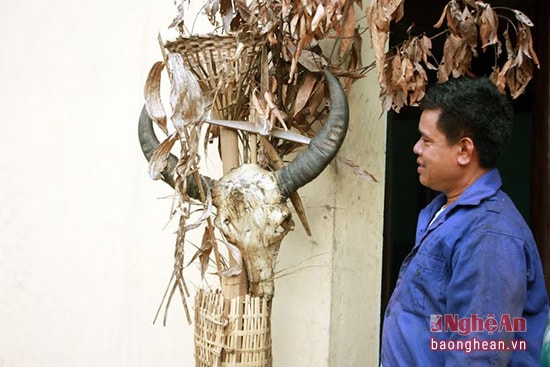 |
| A buffalo head for worshipping ghosts in the sacred kitchen of the Khmu people. Outsiders, even married daughters, are not allowed to enter this kitchen. |
The Khmu also live in stilt houses like the Thai, but their houses have two kitchens. One is used for normal cooking. The other is the “house ghost” kitchen, which is only used once a year on the day of worshipping ancestors. The Khmu also forbid outsiders from entering this kitchen.
Even daughters who have married are not allowed to enter the “house ghost” kitchen anymore. In Nghe An, the Khmu people mainly reside in localities such as Ky Son, Tuong Duong, and Que Phong. This community is originally an ancient indigenous people of this land. The Khmu people build villages on steep mountain slopes and often cultivate upland rice.
Curious visitors who violate this taboo may be fined and forced to pay for pigs and chickens as a blessing for the host. However, in some places, visitors can ask the host to open the door so they can take pictures of this unique kitchen from the outside.
4. Entering the house with a "sniff"
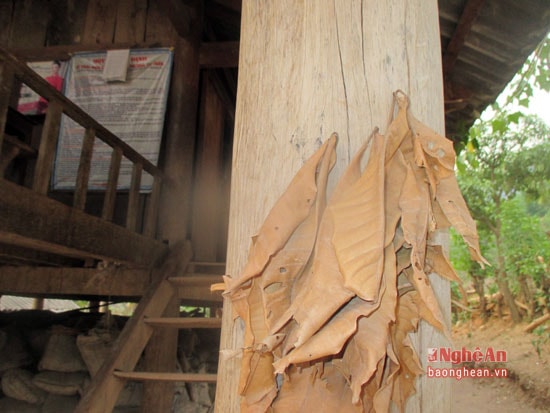 |
| The leaf is used to ward off evil spirits in some Thai holidays. |
The Thai people call the ceremony to dispel bad luck “khoc”. This ceremony is held by a shaman who is chosen to dispel evil spirits and misfortunes that a person or a whole family has suffered. During this ceremony, the shaman will perform a ritual for a whole day. Bamboo boats and rafts are placed in the ceremony with the meaning of letting bad luck go with the flow.
After the “khoc” ceremony, for two consecutive days, the person performing the ceremony or the whole family, if the ceremony is for the whole family, will not be allowed to leave their house. Children are not even allowed to go down the stairs.
Of course, outsiders are not allowed to enter the house. When visitors come to a Thai house and see a bamboo net with leaves, they should carefully ask the owner if it is taboo or not before entering the house. Some Dan Lai and Kho Mu villages also have this custom.
However, according to some shamans, nowadays, following the new lifestyle, shamans often decide to ignore this taboo. However, not all villages have abandoned the taboo after the "kho" ceremony.
5. Leaning against the ghost pillar of the Mong people's house
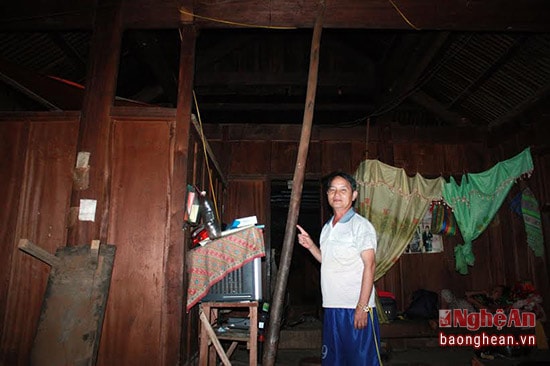 |
| The main pillar in a Mong house. Do not lean against this pillar as it will disturb the "house ghost" of the Mong people. |
In Nghe An, the Mong people are a mysterious community in the high mountains of Ky Son, Tuong Duong, and Que Phong districts. The villages are covered in clouds and have cool air all year round, making them the perfect place to escape the heat for backpackers who want to "change the air". However, the Mong community also has many traditional customs, in which each clan has its own taboos.
In the middle of a Hmong house there is a pillar that looks nothing special but is quite “dangerous” to those who do not understand Hmong customs. It is the house ghost pillar. When a family member dies, their soul will rely on it.
If someone accidentally leans against the pillar, the house ghosts, or the souls of the deceased, will be disturbed. This brings bad luck to the family. Therefore, if you accidentally lean against the pillar, or even just touch it, and the homeowner discovers it, you may be forced to buy pigs, chickens, or spend money to make the family happy.
6. Wear shoes and carry bags into a house with a newborn baby.
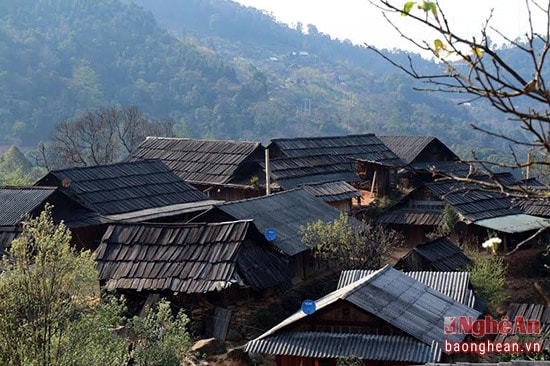 |
| Hmong people's house. |
It is not difficult to recognize when there is a newborn baby in a Hmong house. The men, who are very hard-working, will not go to the fields but stay at home with their wives. A bunch of leaves is hung in front of the door to ward off evil spirits.
Of course, when you come to the house, the homeowner can immediately place a few rattan chairs to "invite guests to sit outside" without entering the house.
You can still ask permission to visit a Hmong house if you have a baby, but you have to follow some rules. First, you have to leave your shoes outside. Second, you are not allowed to bring backpacks and large bags into the house.
The Mong people believe that shoes and large bags can contain the spirit of milk. When you bring bags and shoes into the house, the spirit of milk can get into them and be taken away by you. Then the mother will not have milk to breastfeed her baby.
If you commit this, you will not be punished, but it is something the homeowner does not want.
You are

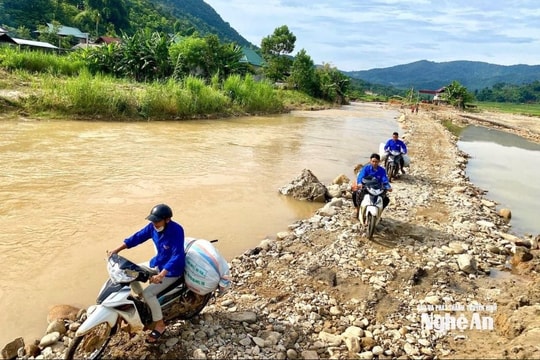
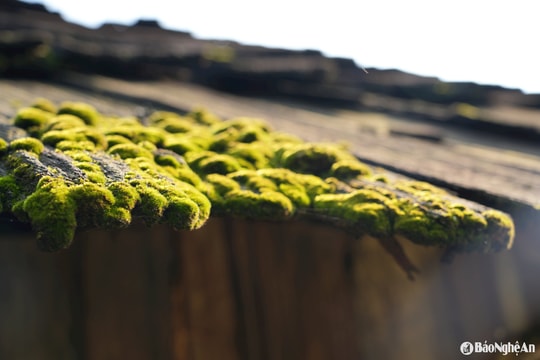
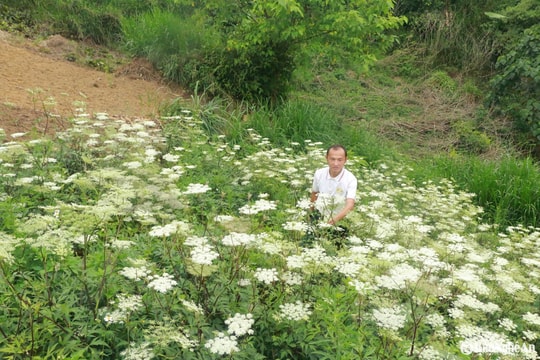
.jpg)
.jpg)
-74aca2a5f00de6a4adb92166e0f711d0.jpg)
